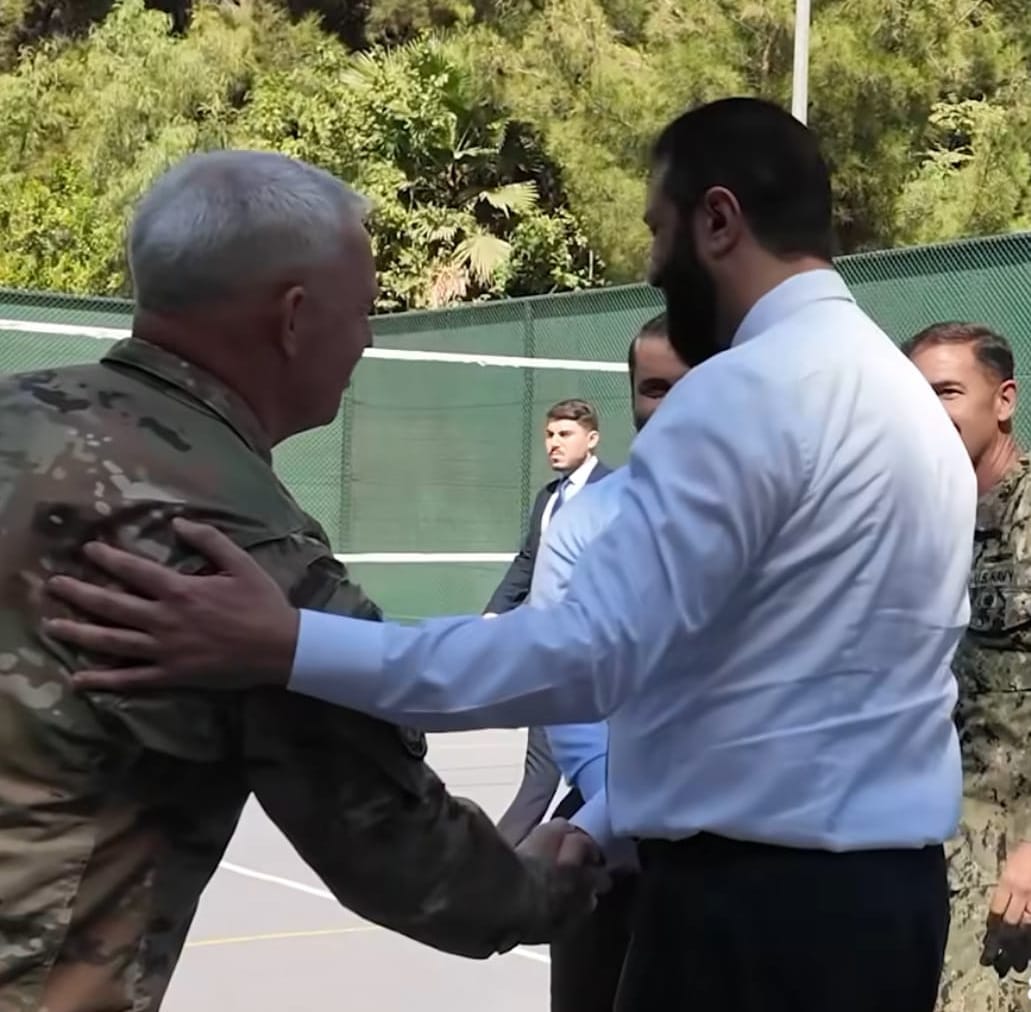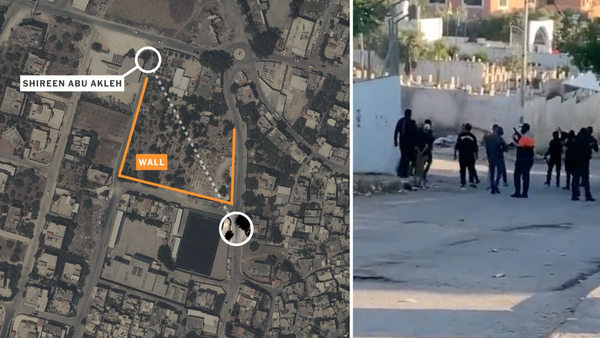Sharaa shoots his shot

Crazy things happen in world politics all the time, yes, but there really aren't many scenes as surreal as Ahmed Sharaa – not so long ago a leading jihadist insurgent in Iraq and Syria and now Syria's president – triumphantly visiting the White House. But unlike a lot of what Trump does, this makes sense. Sharaa, backed by the unlikely coalition of Turkey, Qatar, and Saudi Arabia, has been aggressively marketing the new Syria as a potential Western ally and target for Western and Gulf investment. After decades of bloody fighting against Iranian proxies from within a generally anti-Shi'a sectarian salafi-jihadist ideology, he doesn't need much convincing to be hostile to Iran. And thus far he seems perfectly happy to play the usual Arab leadership game of avoiding confrontation with Israel as the ticket to Washington (but not, I argue in the piece, through the UAE-branded Abraham Accords vehicle... sorry Kazakhstan, you're on your own this time).
Even crazier, this gambit represents one of the shrewdest things the Trump administration has done in the Middle East, or anywhere. The US sees the opportunity for a major regional strategic realignment if it can lock the new Syria into its alliance system. After the White House meeting, the US announced the suspension of most of the Caesar sanctions, imposed over horrific Assad-era human rights abuses, to go along with coordinated sanctions relief via the United Nations and Europe. Syria is signing up for global counterterrorism activities, and there's talk of an American airbase and a Trump Hotel in Damascus, But there are a few spoilers along the way. In a new piece for Foreign Policy today (gift link), I argue that:
U.S. plans for Syrian President Ahmed al-Sharaa are coming into view as he visits the White House on Monday. The United Nations and Britain have lifted sanctions against the former jihadi, and reports are swirling across the region about Syrian plans to offer an air base outside Damascus to the United States and a Trump Tower in the capital, showing Sharaa’s understanding of today’s Washington game. All signs point toward a U.S. vision of integrating the new Syria firmly into the Washington-led regional order—if he can deliver on consolidating a stable, and likely autocratic, regime and if Israel can be prevented from wrecking the entire gambit.
Those two bits are pretty considerable obstacles, though. First, Sharaa has been struggling to consolidate state authority, particularly in the wake of the horrific violence which erupted in Suweida in July. Key questions of transitional justice, constitutional design, security provision, and economic reconstruction remain unresolved, while many in Syrian civil society who were once optimistic about the post-Assad transition now openly worry about a slide back into autocracy. Americans and Arab regimes, for the most part, are perfectly fine with that – they've never wanted inconvenient and messy democracy in the region before, and they would much prefer a strongman who can deliver stability and unpopular ties with the US and Israel.
Second, Israel has thus far worked directly against these American and international efforts through its military and political interventions on Syrian territory:
Israel has stood defiantly outside this U.S.-led support for Sharaa’s state-building efforts. Instead, Israel has taken advantage of the transitional moment to expand its territorial reach inside Syria, bombing alleged hostile targets at will and warning the Syrian government not to send troops into the south of the country. Extreme Israeli voices even called for humanitarian intervention to protect against a “genocide” of the Druze, a thinly veiled and deeply cynical pretext for Israeli permanent occupation or annexation of Syrian territory beyond the Golan Heights....
...in Syria, as with the reckless strike on Hamas leaders in Qatar, the country is racing toward open confrontation with its primary international backer. If the United States really does establish an air base in Damascus, it would quickly be forced to grapple with the fact that the most dangerous and destabilizing external threat to Syria currently is Israel. That makes Syria the unexpected leading edge of the little-noticed emerging divide in priorities between the United States and Israel, which could have wide-ranging implications for the regional order.
Read the whole piece at Foreign Policy here.
Last week, I was delighted to be able to present my book America's Middle East: The Ruination of a Region at GW's Elliott School of International Affairs. It meant something special to be able to present it at my academic home of the last two decades. And I think the talk went unusually well. Here's a video of the event – for those who've asked for a good summation of the book in video form, this is the best one available. Enjoy!
Next up: Shibley Telhami hosts me for a book chat at the University of Maryland's Anwar Sadat Center for Peace and Development this coming Wednesday, November 12, at 11:30am. I can't find an RSVP link online.



